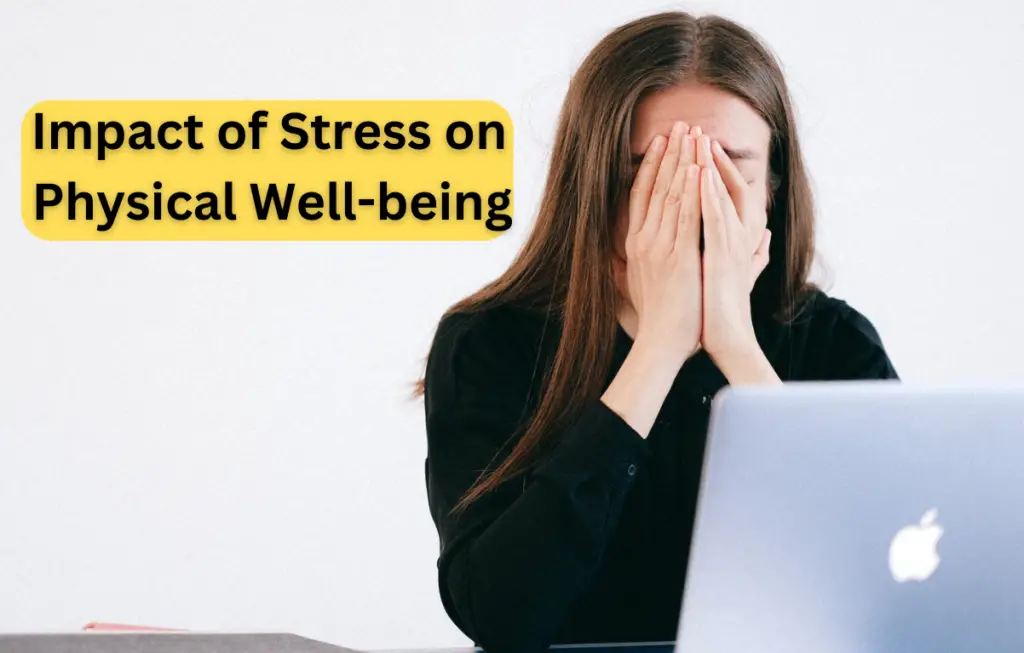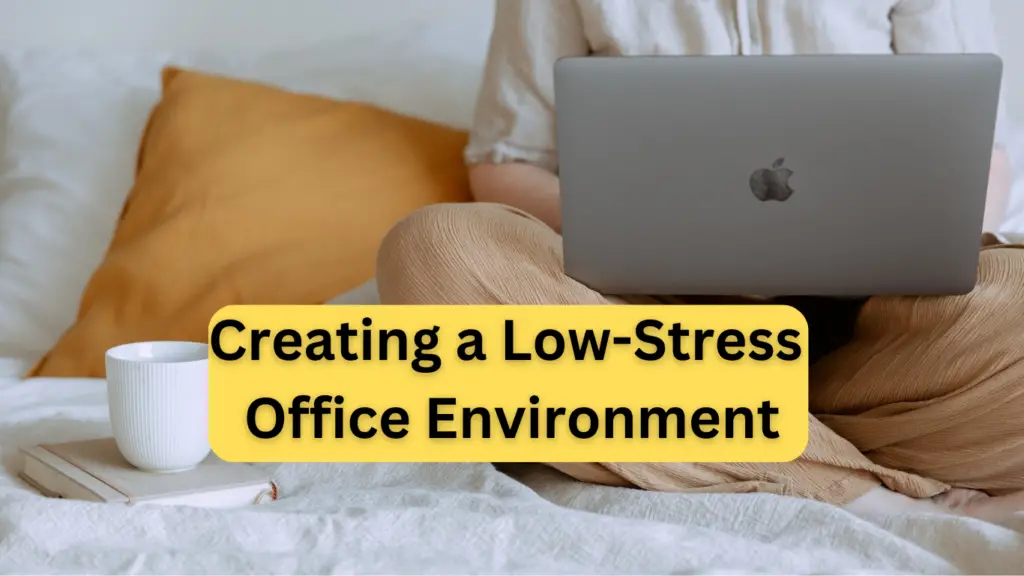Stress can often be seen as a negative factor in our lives, but did you know that it can also have a profound effect on our physical and mental health? Stress has the potential to affect both our physical and mental health in various ways. It is important to understand how stress affects our body and mind so that we can effectively manage its impact. This article will explain the types of physical and mental health issues associated with stress, as well as provide tips to help reduce its effects. Physical Health
Stress can have a negative impact on our physical health in many ways. For example, it can lead to headaches, muscle tension and pain, gastrointestinal problems, heart disease and hypertension.
Stress Definition
Stress is a normal part of life, but when it becomes excessive or prolonged, it can lead to physical and psychological distress. Long-term stress can affect the body in many ways such as elevated blood pressure, heart disease, weakened immune system, digestive problems and headaches. It may also lead to mental health issues such as depression, anxiety and suicidal thoughts.
Stress that is left unchecked or unresolved can cause long-term damage to our physical and mental health. Stress hormones released in response to threatening situations produce a fight-or-flight response which prepares us for action. However, when this stress response is active over an extended period of time it can have a negative effect on our health. When experiencing high levels of stress for long periods of time our bodies become exhausted causing fatigue which leads to decreased productivity at work or school as well as poor decision making skills due to lack of concentration and focus. Additionally, prolonged exposure to stressful situations increases the risk of developing depression or other mental health issues as well as physical illnesses such as cardiovascular diseases.
The key is recognizing the signs of stress early on so that we can take steps towards managing it before it takes its toll on our physical and mental health. It’s important for us to take care of ourselves by getting enough sleep, exercising regularly and eating healthy meals so that we are better equipped to cope with difficult situations both physically and mentally.
Physical Health Effects
Physical health can suffer greatly due to chronic and unmanaged stress. When our bodies are in a constant state of stress, cortisol levels increase, which can lead to digestive problems, headaches, heart palpitations and chest pain. Additionally, when hormones like cortisol are in the bloodstream for too long a period of time it can cause high blood pressure or an irregular heartbeat. Furthermore, people suffering from chronic stress may also find their immune system weakened as the body is unable to fight off infections or illnesses as efficiently as it would were their bodies not under such prolonged strain. This means that they are more susceptible to getting sick more often than those whose bodies aren’t constantly under pressure. Finally, studies have even suggested that unmanaged stress may lead to an increased risk of developing certain types of cancer due to changes in hormone levels and effects on the immune system caused by elevated cortisol levels over extended periods of time.
Mental Health Effects
Mental health effects of stress can be wide-ranging and long-lasting. Chronic stress can lead to anxiety, depression, poor concentration, insomnia and even psychotic episodes. When experiencing severe or prolonged periods of stress, individuals may feel overwhelmed, unable to cope or experience a sense of hopelessness. Stress also amplifies existing mental health conditions such as bipolar disorder or schizophrenia and can cause an increase in symptoms.
Physical health is also affected by chronic stress. Prolonged exposure to the body’s fight-or-flight response caused by high levels of cortisol leads to increased risk for cardiovascular disease, digestive problems and weakened immunity systems. Stress has been linked to headaches, muscle tension and pain as well as fatigue due to lack of sleep or restful sleep. It can even affect our appetite; some people overeat when stressed while others lose their appetite entirely due to a decrease in serotonin levels associated with elevated cortisol levels during stressful times.
Positive Stress Benefits
Positive stress, sometimes referred to as eustress, can be beneficial and is often associated with increased motivation and improved performance. It can help us to tackle difficult tasks and situations more effectively. For example, a student who experiences positive stress before an important exam may focus better and have the drive necessary to succeed. Positive stress also helps us manage daily life by providing incentives for completing tasks in a timely manner.
On the physical level, positive stress has been linked with improved immune system responses that help protect our bodies from illness or injury. This is because it triggers an increase of hormones like adrenaline which not only keep us alert but also boost certain physiological processes such as circulation or digestion that are needed for proper functioning of the body. Studies have shown that people who experience positive stress tend to be healthier overall than those who don’t.
In addition, positive stress can contribute positively to our mental health by helping us cope with hard times more easily. When we experience this type of stress we are better able to identify potential solutions and actively work towards achieving them instead of feeling defeated or discouraged at every obstacle we face. Furthermore, it encourages us to take risks which in turn could lead to greater rewards and personal growth in the long run.
Coping Strategies
One of the most common ways to cope with stress is through exercise. Exercise releases endorphins, which are hormones that can act as natural painkillers and improve mood. It also helps reduce muscle tension and increase energy levels. Additionally, regular physical activity helps keep the body and mind healthy by helping to manage stress hormone levels and improve immune function.
Another method of coping with stress is meditation. Meditation helps clear your mind, relax your body, and can even provide a sense of peace or understanding about a difficult situation or emotion. Practicing mindful breathing exercises or focusing on one specific idea for several minutes can be an effective way to bring down feelings of stress or anxiety in the moment.
Finally, spending time in nature is another great way to cope with stress. Research has found that being in nature reduces cortisol (the primary hormone associated with stress) levels, improves sleep quality, lowers blood pressure, increases creativity/concentration abilities and promotes positive emotions like joy and awe. Taking a walk outside in the sunshine or sitting quietly among trees can be an excellent way to reset after a stressful day or week.
Professional Resources
Professional resources are available to help individuals manage stress. These can include counseling, support groups and educational programs. Counseling can provide a safe space for individuals to talk openly about their worries and concerns in order to identify the sources of stress in their life. Support groups can offer encouragement, understanding and advice from people who have been through similar experiences. Educational programs may be offered by health care providers or community organizations that specialize in teaching strategies for managing stress. Examples of these strategies include relaxation techniques such as breathing exercises, yoga or mindfulness practice; cognitive reframing; problem-solving skills; time management and goal setting; communication skills; physical activity; and nutrition education. Professional resources also provide access to information on how to recognize signs of depression, anxiety disorders or other mental health issues that might arise due to unmanaged stress levels.
Conclusion
In conclusion, it is clear that stress can have a major impact on our physical and mental health. Stress can cause physical symptoms such as headaches, chest pain, muscle tension and digestive issues. It can also lead to emotional issues such as anxiety and depression. By understanding the causes of stress and learning how to manage it effectively, we can take action to reduce its negative effects on our health. There are various ways to control stress including exercising regularly, getting enough sleep, eating a healthy diet and spending time with loved ones. Additionally, finding ways to relax such as yoga or mindfulness meditation can be beneficial in relieving stress-related symptoms. Taking steps towards managing stress will help us maintain better physical and mental health in the long run.


